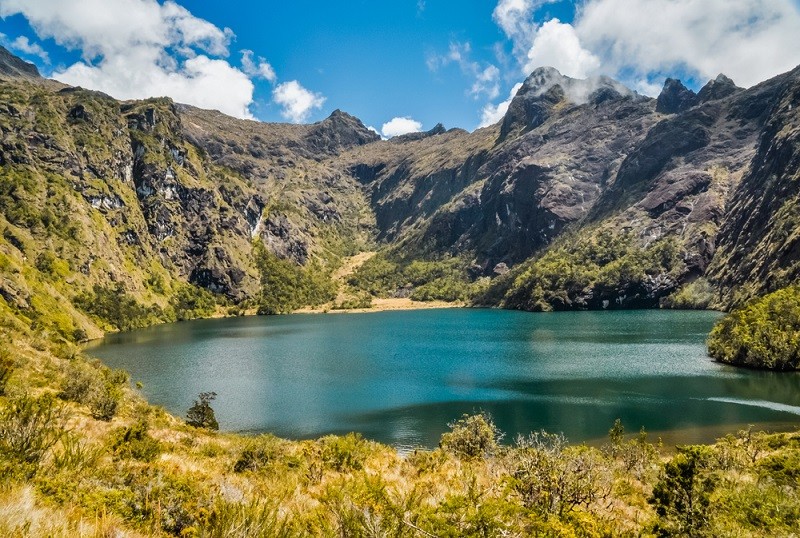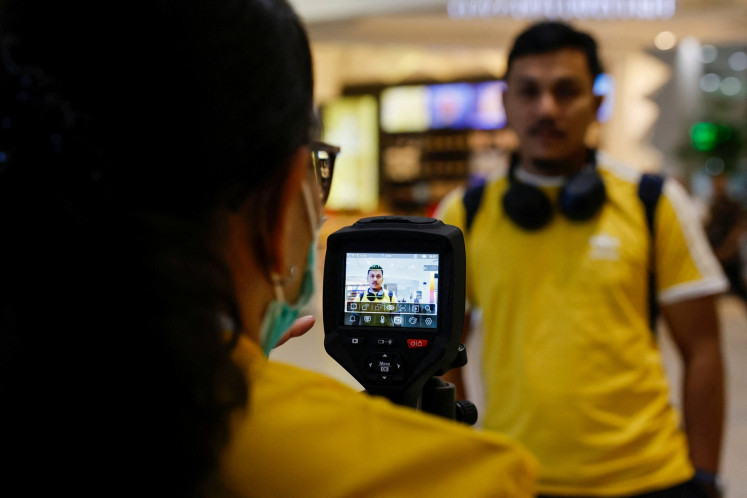Popular Reads
Top Results
Can't find what you're looking for?
View all search resultsPopular Reads
Top Results
Can't find what you're looking for?
View all search resultsLost in translation: Papua New Guinea wins the language Olympics
With 841 living tongues and a colorful creole lingua franca, Papua New Guinea is the undisputed world champion of linguistic diversity.
Change text size
Gift Premium Articles
to Anyone
I
f you are traveling to Papua New Guinea, you don't need to pack a phrasebook, you need to bring an entire library. With 841 living tongues and a colorful creole lingua franca, this Pacific nation is the undisputed world champion of linguistic diversity.
From Pii in the mist-cloaked highlands to Toaripi on the shores of the gleaming Coral Sea, Papua New Guinea is a linguist's paradise with one in 10 of the world's languages found here.
The number of speakers of individual languages can range from a handful of people in the jungle -- not much more than an extended family -- to millions spread across provinces and terrains.
Experts point to the country's relatively weak central government, deep valleys, almost impenetrable vegetation and roughly 600 islands to explain why a country of eight million people and smaller than Spain has such a bounty of languages, when 46 million Spaniards -- for all practical purposes -- make do with a dozen or so.
Many of these diverse tongues have developed undisturbed over tens of thousands of years, making Papua New Guinea something of a linguistic Galapagos.
To get by day-to-day, Papua New Guineans typically speak three to five languages, and understand many more dialects.
But ironically they can sometimes struggle to render a simple sentence in one language into their mother tongue -- particularly when discussing numbers over 10 or when rural-based languages are deployed to describe life in the big city.
When asked to say "there are more than 800 languages in Papua New Guinea" in Vula'a -- which has a couple of thousand speakers in the central province -- Port Moresby office worker Sonia Pegi has to call her dad just to make sure she has it right.
Read also: Taking action to preserve Javanese language
- 'Pidgin English' -
The country's most widely spoken language is pidgin English or Tok Pisin, although this being Papua New Guinea, Tok Pisin only claimed its lingua franca status after beating out a pretender in the form of semi-creole Austronesian language Hiri Motu.
Tok Pisin, Hiri Motu and English are the country's three official languages.
"Tok Pisin is derived 80-85 percent from English," said Jenny Homerang who is starting a pidgin language course at the Australian National University in Canberra. "But you also have bits of German and bits of Portuguese."
In fact, Tok Pisin is something of a linguistic sponge, soaking up words from languages as distant as Taiwanese and Zulu, which dominates the southeastern corner of Africa.
Suspected sorcerers -- who in Papua New Guinea can often be the victims of extreme violence -- are referred to as "sangoma", a word familiar to anyone living in Johannesburg or Durban.
Tok Pisin is also a deeply expressive language: you can 'bagarap' your car in an accident, or relieve yourself in the 'sithaus'.
But sometimes things get lost in translation. 'Ol' means 'they', not 'all', which can confuse a first-time visitor.
Similarly, 'lukim yu bihan' is not an instruction to turn around, but a way of saying 'goodbye'.











